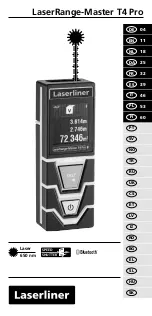
Figure 14.
Typical Test Accelerometer Response
9.0 TROUBLESHOOTING
Piezoelectric sensors are dynamic measuring equipment.
They use piezoelectric sensing elements to convert or
transduce the mechanical phenomena to an electrical
signal. The mechanical parameter may be force, pressure
or vibration. The raw electrical signal from a piezoelectric
charge element is a high impedance signal. This charge
signal is normally converted to a low impedance voltage
signal by either an external charge amplifier or an external
voltage amplifier. The cables between the charge sensor
and the amplifier must be high quality, low noise cable
and must be kept as short as possible. Figure 15 shows a
typical high impedance system.
Figure 15.
High Impedance System Connection
Internally amplified sensors employ miniature
amplifiers to convert the high impedance charge
signal into a low impedance voltage signal. These
amplifiers are internal to the sensor, and therefore,
do not require low noise cables or external
amplifiers. These amplifiers have set gain so that
output sensitivities are standardized.
Figure 16.
Sensor with Integral Electronics System
Connector
ICP® sensors are two-wire sensors. They are
powered with a constant current DC source. The
power supply is typically 18 to 30 volts DC current
limited via a constant current between 2 and 20 mA.
Typical battery operated supplies offer 2mA of
constant current to extend battery life while
continuous monitoring systems offer more current in
order to drive longer cables. Figure 16 shows a
typical system for a sensor with integral electronics.
The signal output of a sensor with integral
electronics is a low impedance voltage signal
proportional to the dynamic measurement such as
force, pressure, or vibration. This voltage signal is
carried on a DC bias voltage. The AC dynamic signal
is superimposed on the DC bias voltage and is
allowed to swing between the supply voltage and
ground as shown in Figure 17. Unlike an operational
amplifier that requires a plus and minus supply and
allows the signal to “ride” on ground and “swing”
between the plus a
nd minus “rails,” the sensor
with
integral electronics requires the output signal to be
DC biased.
Figure 17.
Sensor DC Bias Voltage
This DC bias voltage is an excellent diagnostic tool.
The voltage provides a means of verifying that the
amplifier is “turned on.” Typical input/output power
supplies will block this DC bias voltage at the output
via a blocking capacitor in order to AC couple the
signal to readout devices. By “teeing” off the input
into a DC volt meter, as shown in Figure 18, the bias
voltage can be measured.
While measuring the supply voltage, the bias voltage
can be measured agter the sensor is plugged in. If
the meter stays at supply, something in the system is
open or not connected. If the meter reads “0,”
something in the system is shorted. If the meter
reads within the bias voltage range of the sensor,
then the sensor and cabling are functioning properly.





































